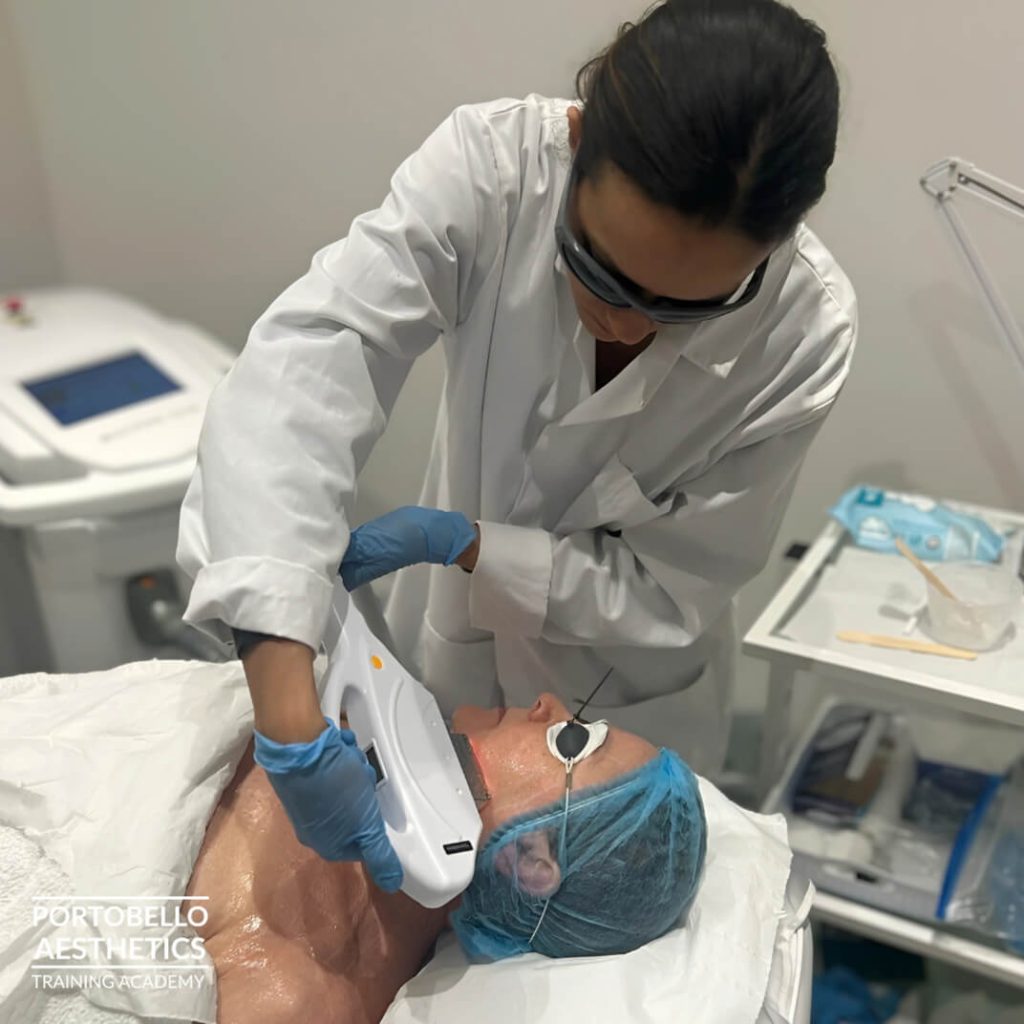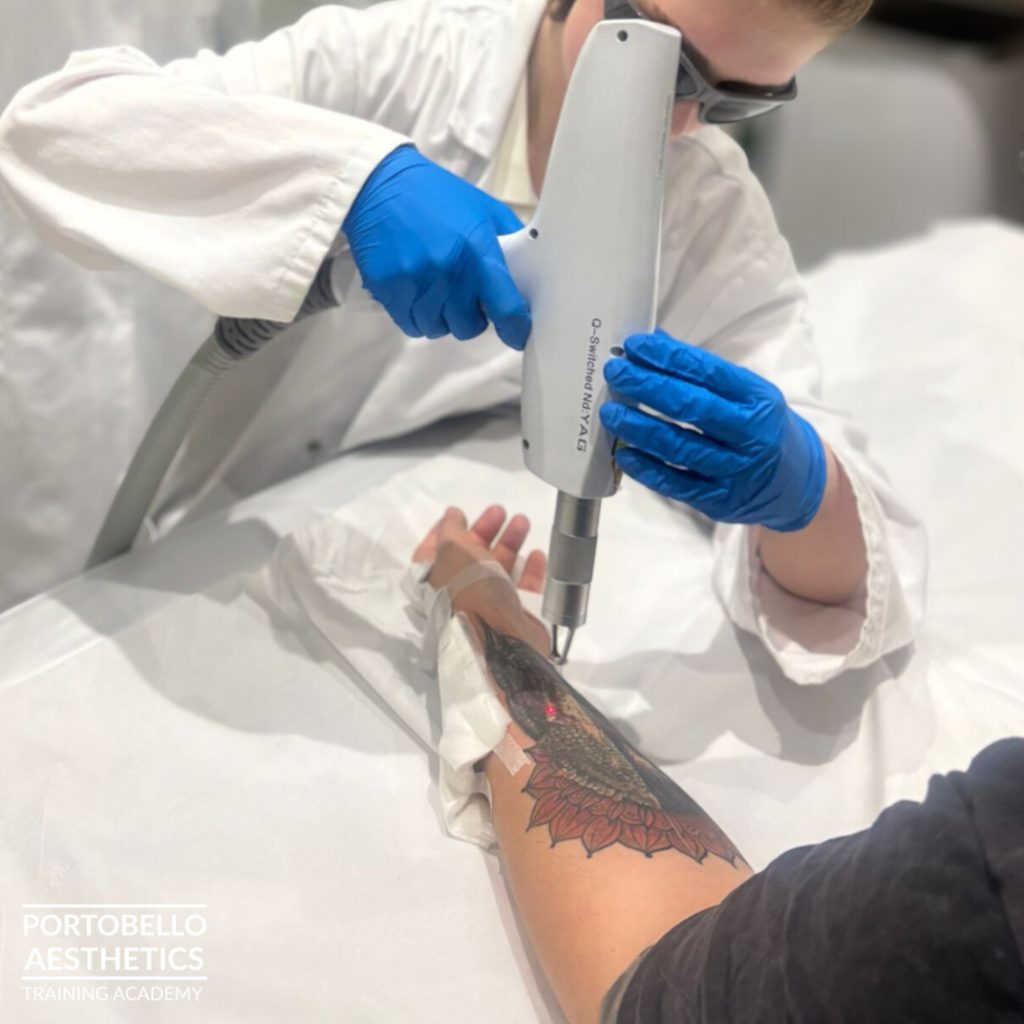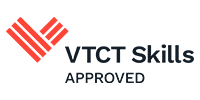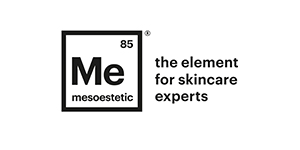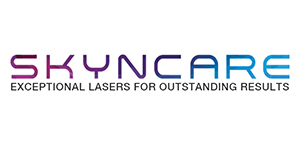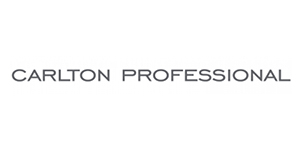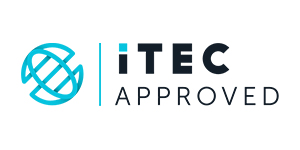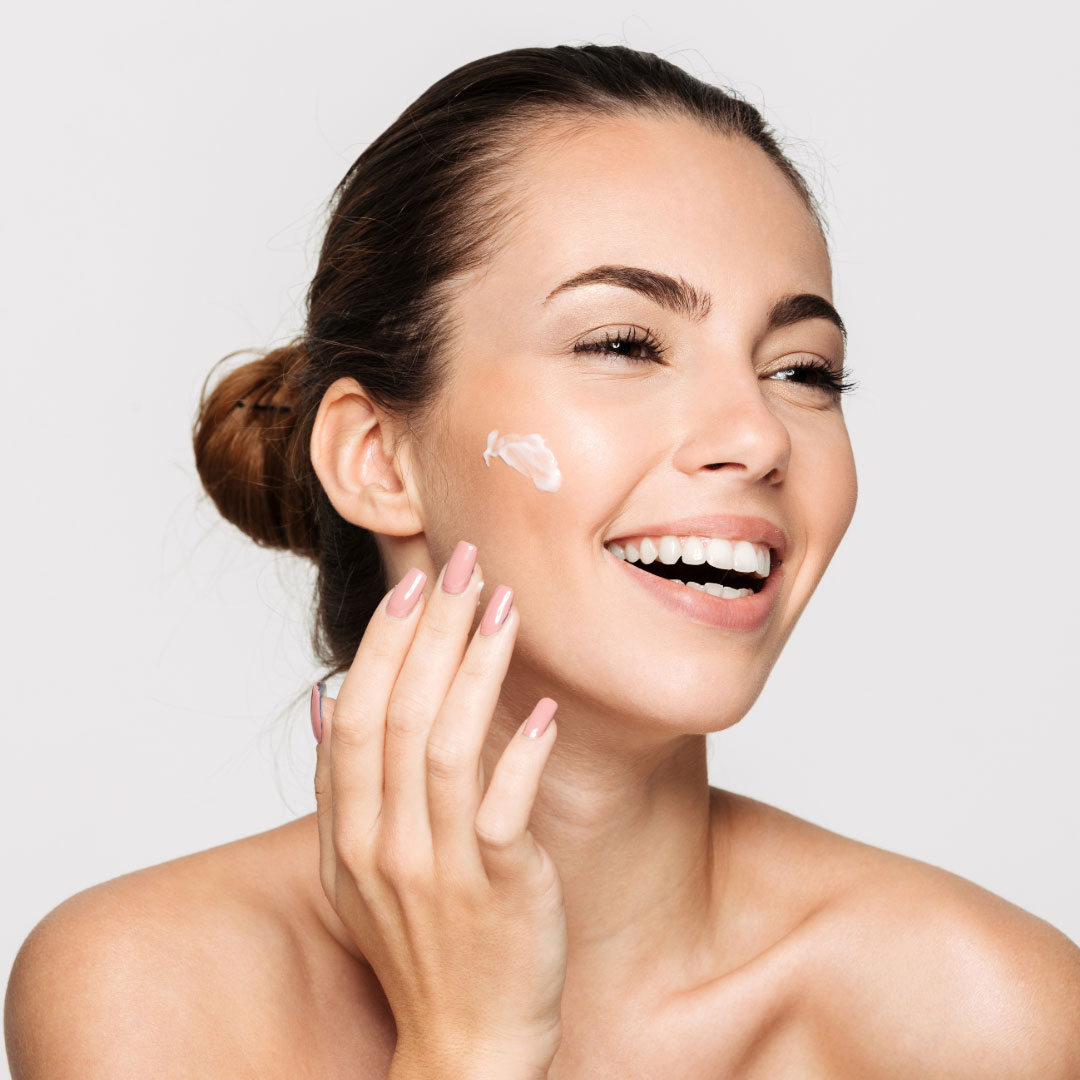What laser and tattoo removal courses do you offer?
We offer comprehensive VTCT-accredited laser therapy training from Level 4 to Level 5 in Ladbroke Grove: Level 4 Laser & IPL Hair Removal (most requested aesthetic treatment), Level 4 Laser Skin Rejuvenation & IPL Treatments (pigmentation, vascular concerns, sun damage), and Level 5 Laser Tattoo Removal using Q-switched lasers. All courses include training with professional laser and IPL systems used in leading London clinics, with small class sizes and individual treatment room access, just 10 minutes from Ladbroke Grove station.
What's the difference between Level 4 and Level 5 laser courses?
Level 4 courses cover laser and IPL hair removal and skin rejuvenation treatments - these are the foundation laser therapy qualifications teaching you to operate laser systems safely for hair removal, pigmentation, and vascular concerns. Level 5 Laser Tattoo Removal represents advanced laser practice using Q-switched laser technology, requiring deeper understanding of laser physics, ink chemistry, and complex treatment protocols. Level 5 typically requires Level 4 qualification or equivalent experience as a prerequisite.
Is laser training difficult?
Laser training is more technical than many beauty courses because it involves physics, wavelengths, and equipment operation. You'll learn about light physics, melanin absorption, selective photothermolysis, and how laser energy interacts with skin and hair. Level 5 tattoo removal adds complexity with ink chemistry and Q-switched laser technology. However, it's absolutely achievable with proper teaching. Our small class sizes ensure you receive attention needed to understand complex concepts and develop confident laser operation skills. The theory becomes clear with good instruction and hands-on practice.
Do I need to be qualified in beauty therapy first?
For most laser courses, yes - a Level 3 Beauty Therapy qualification is typically required, ensuring you understand skin anatomy, client consultation, contraindications, and professional working practices. Some courses may accept healthcare qualifications (nursing, healthcare assistant roles). If you're unsure whether your qualifications meet entry requirements, contact us to discuss your specific circumstances and we'll advise on eligibility.
Can I progress from Level 4 to Level 5 laser qualifications?
Yes - that's the typical progression pathway for laser specialists. Start with Level 4 Laser & IPL training (hair removal and skin rejuvenation), gain experience performing these treatments in clinics or your own practice, then progress to Level 5 Tattoo Removal for advanced Q-switched laser work. Many practitioners build successful businesses offering the full range of laser services across both levels, maximising earning potential and attracting diverse clientele.
How much does laser equipment cost?
Professional laser systems range from £10,000 for basic IPL devices to £40,000-£80,000+ for advanced medical-grade lasers like Alexandrite or Nd:YAG systems. Q-switched lasers for tattoo removal typically cost £15,000-£50,000+. Many practitioners start working in established laser clinics to gain experience before investing in equipment. Some choose financing or leasing options when establishing independent practices, spreading investment over time.
Can I work with lasers on all skin types?
This depends on the laser type. Nd:YAG lasers are safe for all Fitzpatrick skin types including darker skin tones (IV-VI). Alexandrite and some diode lasers work best on lighter skin types (I-III). IPL has significant limitations on darker skin due to melanin absorption and hyperpigmentation risk. A huge part of training focuses on Fitzpatrick typing, selecting appropriate lasers for different skin types, understanding when treatments are safe versus when they risk complications, and knowing when to refuse treatment.
How much can I earn doing laser treatments?
In London: laser hair removal £50-£150+ per session depending on area (upper lip £50, full legs £100-£150, full body packages £800-£1,500+). Tattoo removal charges £100-£300+ per session depending on size and complexity. Because clients need multiple sessions (typically 6-12+ for hair removal, 6-12+ for tattoo removal), total revenue per client is substantial. Full-time laser practitioners in London earn £35,000-£70,000+ annually employed, with independent practitioners often earning significantly more.
Is laser tattoo removal safe?
When performed by properly trained practitioners using appropriate Q-switched lasers, tattoo removal is safe and effective. However, it requires specific knowledge about laser wavelengths for different ink colours (black responds to 1064nm, colours need 532nm or other wavelengths), understanding scarring risks, managing client expectations about gradual fading over multiple sessions, and recognising when tattoos are unsuitable for removal. This is exactly what you'll learn during training, along with realistic consultation techniques.
Do I need special insurance for laser work?
Yes - laser and IPL treatments require specialist insurance due to potential risks of burns, eye injury, or hyperpigmentation. Upon completing your VTCT laser qualification, you'll be eligible for professional laser insurance. Specialist providers like Balens, Guild, Hamilton Fraser, and Cosmetic Insure offer laser-specific policies. Insurance costs are higher than standard beauty therapy (typically £300-£800+ annually) but absolutely essential for legal practice.
Can I run a laser clinic from home?
Possibly, depending on local authority regulations and home setup. Laser treatments require controlled environments with safety measures: eye protection signage, treatment room locks, adequate ventilation, professional equipment storage, and client privacy. Some local authorities have specific licensing requirements for laser practices in residential premises. Many practitioners start with mobile laser services or rent clinic space before establishing permanent premises. Check with your local council about regulations.
What's the difference between laser and IPL?
Lasers emit single wavelengths of light with precise energy, allowing highly targeted treatment of specific concerns. IPL (Intense Pulsed Light) emits multiple wavelengths simultaneously, making it more versatile but less targeted and generally less effective. Lasers provide faster, more effective results for hair removal (fewer sessions needed) and are essential for tattoo removal (IPL cannot remove tattoos). IPL is excellent for skin rejuvenation, vascular concerns, and treating larger body areas quickly.
Do I need to provide models for practical training?
No - we arrange models for your practical laser sessions. However, you're welcome to bring your own if you prefer. For laser training, models need specific criteria (appropriate Fitzpatrick skin type for the laser being used, no contraindications, realistic expectations), and we'll guide you on requirements for safe, effective practical training.
Will I learn about laser safety regulations?
Absolutely - laser safety is fundamental to training. You'll learn about laser classification systems, eye protection requirements (for practitioners and clients), controlled access to treatment areas, local authority registration requirements, incident reporting procedures, professional standards, and legal responsibilities. Understanding and implementing proper safety protocols protects both you and clients, ensures regulatory compliance, and is essential for obtaining professional insurance.
